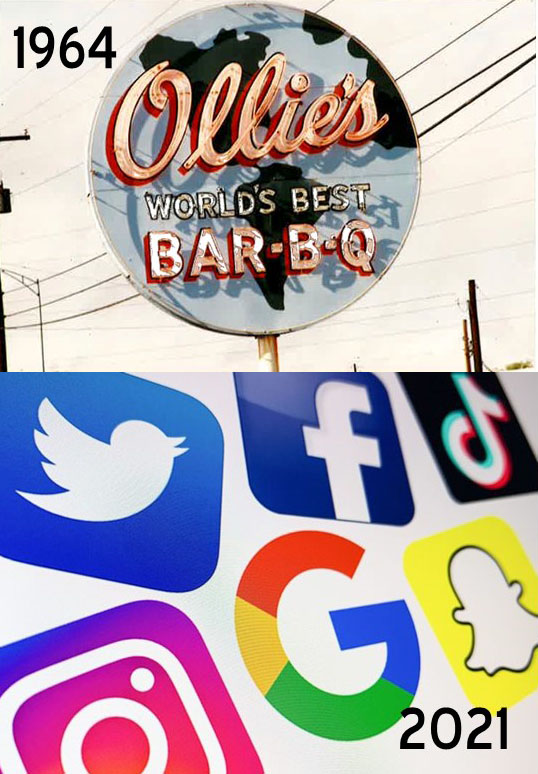
On December 14, 1964, the Supreme Court of the United States decided that Ollie’s Barbecue Restaurant, a restaurant “located on a state highway 11 blocks from an interstate one and a somewhat greater distance from railroad and bus stations,” was subject to the Civil Rights Act of 1964 because its failure to serve black patrons in its restaurant. The decision was base on the potential harm caused by restaurants who discriminated against blacks on interstate commerce.
The court stated that because a substantial amount of food that the Ollie’s sold came from out of state, that there was an impact on interstate commerce, and that the power of Congress extends to activities of retail establishments, including restaurants, which directly or indirectly burden or obstruct interstate commerce.
The Commerce Clause
As to the Commerce Clause of the U.S. Constitution, the court found that it was ‘an express grant of power to Congress to regulate interstate commerce, which consists of the movement of persons, goods or information from one state to another’; and it found that the clause was also a grant of power ‘to regulate intrastate activities, but only to the extent that action on its part is necessary or appropriate to the effective execution of its expressly granted power to regulate interstate commerce.’ There must be, it said, a close and substantial relation between local activities and interstate commerce which requires control of the former in the protection of the latter.
This case was obviously at a different time, over 55 years ago, and was based on legislation from Congress, which is always subject to the U.S. Constitution. Today, however, we have a new assault of discrimination not addressed to a statute from Congress, but against the U.S. Constitution itself. That assault is directed to the First Amendment; more precisely “abridging the freedom of speech,” which is now being enforced by private establishments, not unlike Ollie’s (other than in size). Those violators include Amazon, Twitter, Facebook, Google, Yahoo and others as they continue to block the free speech of conservatives with whom they do not agree.
Today’s Speech Discrimination
We hear the argument that these businesses are private companies and that they cannot be forced to allow others to voice their opinions on their platforms without the express permission of these Tech giants. It begs the question, how are these companies any different than Ollie’s. There is a movement of information across state lines on all of these platforms, bringing their actions under the enforcement powers to regulate interstate commerce. Discrimination against individuals based on their political beliefs can have just as much impact on commerce as refusing to sell a barbecue sandwich to a black patron.
These companies have no more right to determine what is “hate speech” than you or I do, under the law, just as Ollie’s owners did not have the right to determine who they would or wouldn’t serve in their restaurant. Furthermore, there is no reason for this case to drag through the courts for 4 years before it reaches the Supreme Court. The Civil Rights Act of 1964 passed on July 2, 2964, and this case was heard only three months later on October 5, 1964. The First Amendment to the Constitution has been around considerably longer, and this issue should be addressed by the Supreme Court immediately.